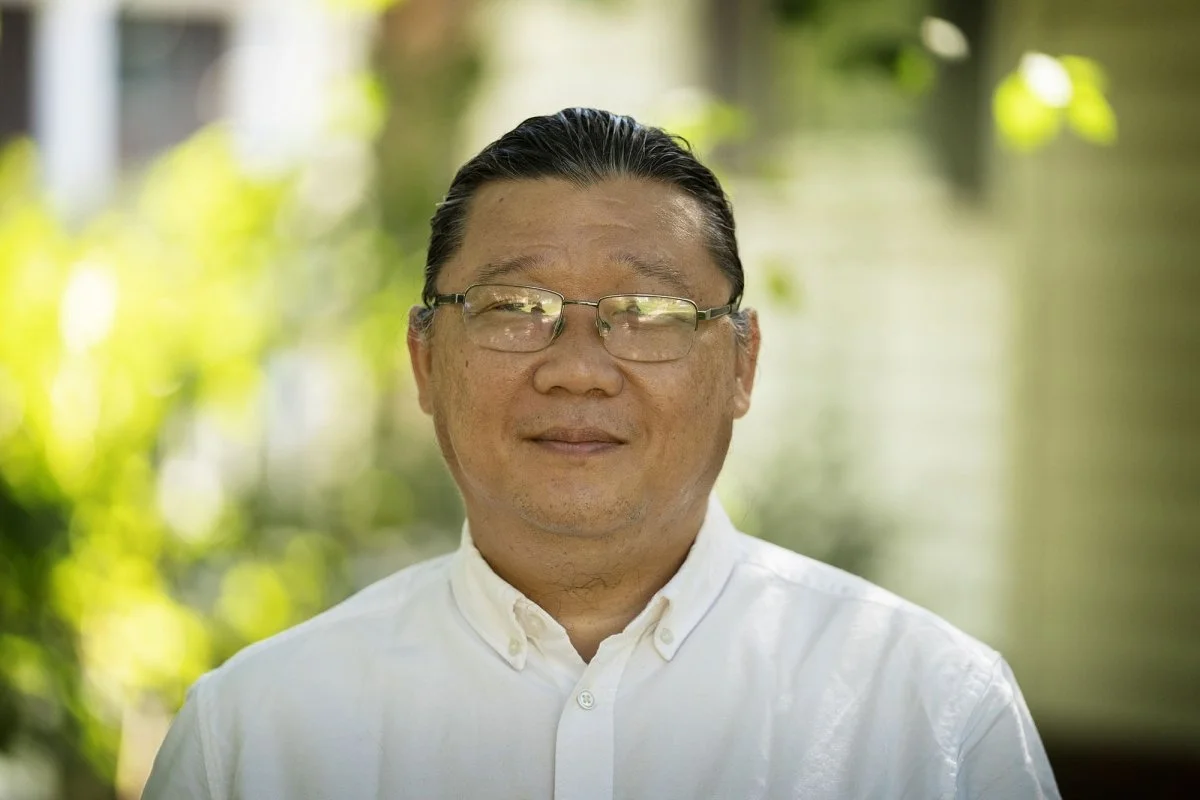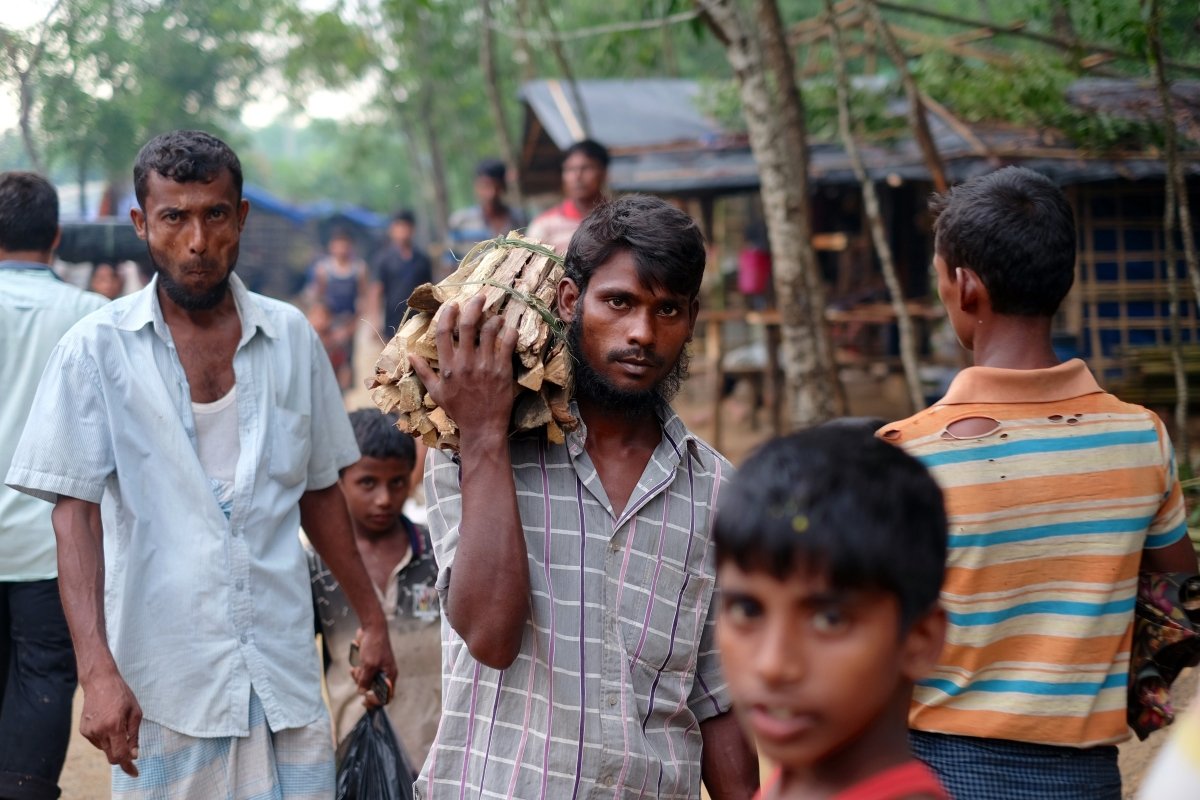Hot Spots, Part III - Myanmar
Peaceful protests against the military coup in Burma may descend into civil war.
Read
Myo Yan Naung Thein had to be smuggled out of his country last spring or face certain torture and death. A leader in Myanmar’s pro-democracy movement, Naung Thein worked in the National League for Democracy, the party of deposed leader Aung San Suu Kyi. Now in exile in the United States, Naung Thein shares his gripping tale, and explains why he thinks the Burmese military regime is losing.
Just before Burma gained independence from Britain in 1948, the southeast Asian colony’s national hero, Maj. Gen. Bogyoke Aung San, was assassinated. The fledgling country soon fell into the hands of a military dictatorship, which exploited fears of communist revolution and ethnic divisions to subdue the people and crush the opposition. For nearly 50 years, the junta thwarted efforts to democratize Burma, renamed Myanmar in 1989.
The junta disregarded its own electoral procedures, at last accepting quasi-democratic rule in 2010. Then it orchestrated an election victory for its own Union Solidarity and Development Party. But democracy advocate Aung San Suu Kyi, Gen. Aung San’s daughter, was released from house arrest days after the election under international pressure. And she has since enjoyed broad popular support for her pro-democracy party, leading the party’s candidates to two parliamentary victories. Last February, military leaders stripped her of her position as State Counsellor — essentially, the prime minister — and has trumped up serious allegations to keep her from power.
Since this latest coup, thousands of peaceful protestors have taken to the streets and many have been imprisoned and killed. An armed resistance is forming in the forests of Myanmar to fight back, while others, like Naung Thein, the NLD’s chief of research, still yearn for a peaceful resolution. Together with his wife, Naung Thein is now living in exile in Charlottesville, Va., with support from our parent organization, the University of Virginia’s Democracy Initiative. This week, he joins Will and Siva for a conversation about how the Burmese military, with a mere 1 percent of the population in its ranks, continues to hold on — and how it may yet be overcome. He also assesses, quite candidly, Suu Kyi’s missteps as the country’s leader.
Meet
Myo Yan Naung Thein served as chief of research in Aung San Suu Kyi’s National League for Democracy. Prior to the NLD’s brief time in power, he spent 10 years over three terms as a political prisoner. Following February’s coup, Naung Thein went into hiding, then fled the country three months later, taking up a disguise with his wife. Along the way, he got help from the Free Burma Rangers, the U.S. Embassy in Thailand, and Stephen Parks, a UVA English professor. Naung Thein is now a visiting scholar in UVA’s Democracy Initiative, and a member of the initiative’s Democratic Futures Working Group. He lectures students in several classes and is working on a memoir. Follow Naung Thein’s Facebook page.
Naung Thein recently wrote about his life and how America’s founding inspired him to fight for democracy in his own country.
Learn
The confrontations in Myanmar between military forces and pro-democracy activists has grown increasingly violent.
The situation has prompted speculation about whether the country is on the verge of civil war, with the People’s Defense Force taking up arms to resist the fearsome national army, known as the Tatmadaw.
The New York Times reported last month that defections among its rank and file are on the rise.
When Naung Thein was a teenager, he read a lot about Thomas Jefferson, but never imagined he’d end up at Mr. Jefferson’s university.
Naung Thein was among the high-profile officials associated with Suu Kyi’s administration who were targeted for detention soon after the military regained control of the government. Earlier in his career as a pro-democracy advocate, Naung Thein was jailed repeatedly for his civic engagement, once serving a six-month sentence after criticizing the Burmese military on Facebook.
His party’s leader, Suu Kyi was accused of election fraud in November 2020. Military leaders cited this as a primary reason for their takeover in February.
Human rights activists around the world, meanwhile, were sharply critical of Suu Kyi’s leadership over the past few years. A Nobel Peace laureate, she disappointed many supporters in defending Burmese soldiers at the International Court of Justice in the Hague last year. Myanmar’s army has been implicated in a genocide against the Rohingya people in the western state of Rakhine.
Despite her efforts to appease the military brass, Suu Kyi was sentenced to four years in prison earlier this week and could spend the rest of her life behind bars. But a younger, more diverse, generation of Burmese activists have claimed the flag of resistance and are operating a shadow government.
Naung Thein is one of countless Burmese exiles working from abroad to improve political and economic conditions in Myanmar. Here’s one other personal story worth checking out: As a child, Pwint Htun left her rural village for the United States; now she’s a tech entrepreneur who is using digital tools to help marginalized people in her native country.
For some deep background on Myanmar’s plight, read The Hidden History of Burma, by Thant Myint-U.
About This Series
We’re rounding out Season Three with a tour of democracy hot spots both abroad and close to home. We began in November with an examination of the effort in our own hometown to hold far-right extremists to account for the violence inflicted during the “summer of hate.” Last week, we turned to Cuba and put the unprecedented July 11 protests on the island into historical context. Coming soon: a look at crises and breakthroughs in Eastern Europe.












